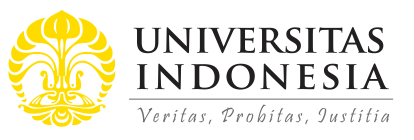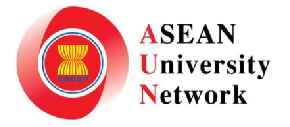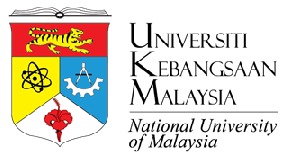
Abstract
This paper examines the roles and responsibilities in the country’s development toward the Sustainable Development Goals (SDGs). The media in any society is fundamentally a development partner. Whether combating diseases or disseminating critical messages about development plans and actions to the public, the media is a key stakeholder. In Nigeria, the government, in collaboration with development agencies and other relevant stakeholders, has actively sought pathways to actualize the SDGs. The media are among these important stakeholders. The Nigerian press and media to serve the people and development across the nation present a good opportunity. However, this study observes that after SDGs were developed in 2015 and adopted by United Nations members, they remained unattended after the deadline. Against this backdrop, this study evaluates Nigeria’s development in light of the SDGs. Using a library research approach, the researchers examined the literature to interrogate the roles and responsibilities of the Nigerian media in achieving these goals. The study finds that the Nigerian media played vital roles in the processes leading to actualizing of the goals and identified key areas where improvement is required. It concludes the potential of the Nigerian press and media in paving their way to contribute further to the SDGs actualization and to the development of Nigeria.
References
Adenipekun, A. (2023, January 4). The brain drain of healthcare professionals in Nigeria: The buck stops with government. Blavatnik School of Government, University of Oxford. https://www.bsg.ox.ac.uk/blog/brain-drain-healthcare-professionals-nigeria-buck-stops-government
Adepoju, P. (2019, August 13). Why Nigeria’s campaign to end open defecation is failing. Devex. https://www.devex.com/news/why-nigeria-s-campaign-to-end-open-defecation-is-failing-95448
African Development Bank Group. (2022, December 14). New report shows need for greater action if Africa is to hit SDG, agenda 2063 targets. https://www.afdb.org/en/news-and-events/press-releases/new-report-shows-need-greater-action-if-africa-hit-sdg-agenda-2063-targets
African Union. (2022). New report shows need for greater action if Africa is to hit SDG, agenda 2063 targets. https://www.afdb.org/en/news-and-events/press-releases/new-report-shows-need-greater-action-if-africa-hit-sdg-agenda-2063-target-57403
Agency Report. (2021, March 8). Nigeria to establish court on gender-based violence. Premium Times. https://premiumtimesng.com/news/more-news/447578-nigeria-to-establish-court-on-gender-based-violence.html
Akeju, K. F., & Olanipekun, D. B. (2015). Unemployment and economic growth in Nigeria. Journal of Economics and Sustainable Development, 5(4), 138–144. https://www.iiste.org/Journals/index.php/JEDS/article/view/11279/11587
Amata, D. (2023, July 26). Good health and wellbeing: Any progress on SDG 3 in Nigeria? Dataphyte. https://www.dataphyte.com/latest-reports/good-health-and-wellbeing-any-progress-on-sdg-3-in-nigeria
Apuke, O. D., & Omar, B. (2020). Fake news proliferation in Nigeria: Consequences. motivations, and prevention through awareness strategies. Humanities and Social Sciences Review, 8(2), 318–327. https://doi.org/10.18510/hssr.2020.8236
Asemah, E. S., & Nwammuo, A. N. (2017). Corporate social responsibility and the achievement of sustainable development goals (SDGs) in Nigeria. Novena Journal of Communication, 3, 17–36.
Ayobolu, Y. O. (2019). The role of communication in disseminating the United Nations sustainable development goals in the Nigerian agricultural system. Global Media Journal, 17(32), Article 176. https://www.globalmediajournal.com/open-access/the-role-of-communication-in-disseminating-the-united-nations-sustainabledevelopment-goals-in-the-nigerian-agricultural-.pdf
Cayaban, L. R. C. (2003). Concerns and analyses: Media for sustainable development. Tropical Coasts, 10(2), 2. https://pemsea.org/sites/default/files/2023-12/tc-v10n2.pdf
Choudhury, P. S. (2011). Media in development communication. Global Media Journal, 2(2), 1–13.
Cunningham, K. (2020, July 14). Dow works to reduce plastic waste in Nigeria through local partnerships. Recycling Today. https://www.recyclingtoday.com/article/dow-plastics-recycling-nigeria
Dang, T. (2017). Role of media in development communication.
Dara, M. (2020, January 15). PM: Media is gov’t development partner. The Phnom Penh Post. https://www.phnompenhpost.com/national/pm-media-govt-development-partner
Dauda, M. (2018). Watchdog journalism in Nigeria: Democracy and accountability. Asian People Journal (APJ), 1(2), 1–20. https://journal.unisza.edu.my/apj/index.php/apj/article/view/41
Dragomir, M. (2010). Central and Eastern Europe. In P. Norris (Ed.), Public sentinel: News media and governance reform (pp. 245–275). The World Bank.
Durokifa, A. A., & Ijeoma, E. C. (2018). Neo-colonialism and Millennium Development Goals (MDGs) in Africa: A blend of an old wine in a new bottle. African Journal of Science, Technology, Innovation and Development, 10(3), 355–366. https://doi.org/10.1080/20421338.2018.1463654
Federal Ministry of Environment of Nigeria. (n.d.). National action programme to combat desertification. https://www.unccd.int/sites/default/files/naps/nigeria-eng2001.pdf
Federal Ministry of Water Resources. (n.d.). Making Nigeria open-defecation free by 2025: A national roadmap. https://www.unicef.org/nigeria/media/1491/file
Global Hunger Index. (2020). Nigeria. https://www.globalhungerindex.org/nigeria.html
Haruna, A., & Ibrahim, A. A. (2014). Globalization, mass media and development in Nigeria: The nexus. Research on Humanities and Social Sciences, 4(5), 98–105. https://papers.ssrn.com/sol3/papers.cfm?abstract_id=4148015
Iheonu, C. O., & Urama, N. E. (2019). Addressing poverty challenge in Nigeria. African Heritage Institution. https://afriheritage.org/pdf/policybrief/Addressing_Poverty_Challenges_in_Nigeria_.pdf
Imam-Tamim, M. K. (2012). Challenges of sustainable development in Nigeria: Legal perspectives. In W. O. Egbewole, M. A. Etudaiye, & O. A. Olatunji (Eds.), Law and sustainable development in Africa (pp. 23–46). Grosvenor House Publishing.
Inobemhe, K., Isah, A., & Abu, P. (2021). Assessing the adoption of digital technologies in 21st century political communication in Nigeria. Journal of Contemporary Social Research, 5(2), 46–56.
Khalid, M. Z., Ahmed, A., & Mufti, S. (2015). Media and development in society: Continuity and challenges. IOSR Journal of Humanities and Social Science, 20(11), 47–54.
Kuwonu, F. (2024, June 28). 2024 SDG report highlights stalled progress and growing inequities as 2030 deadline approaches. Africa Renewal. https://www.un.org/africarenewal/magazine/june-2024/2024-sdg-report-highlights-stalled-progress-and-growing-inequities-2030-deadline
Mahlatsi, K. (2021). Achieving sustainable development goals (SDGs) in Africa: Challenges and prospects. The Thinker, 87(2), 61–69. https://doi.org/10.36615/thethinker.v87i2.535
Manyi, J. T. (2022, July 7). Sustainable development goals: How is Africa fairing? Cameroon Intelligence Report. https://www.cameroonintelligencereport.com/sustainable-development-goals-how-is-africa-fairing
McCracken, K., Fitzsimons, A., Priest, S., Girstmair, S., & Murphy, B. (2018). Gender equality in the media sector. Policy Department for Citizen’s Rights and Constitutional Affairs. https://www.europarl.europa.eu/RegData/etudes/STUD/2018/596839/IPOL_STU(2018)596839_EN.pdf
New African. (2019, September 22). Gender equality: Nigeria must mind the wide gap. https://newafricanmagazine.com/19891
Nigerian Tribune.(2020, March 13). Out-of-school-children: Can Nigeria solve the problem? Tribune Online. https://tribuneonlineng.com/out-of-school-children-can-nigeria-solve-this-problem
Nwaolikpe, O. N. (2018). The mass media and national development: The case of ‘baby factory’ activities in Nigeria. AVREV IJAH: AnInternational Journal of Arts and Humanities, 7(1), 71–84. https://doi.org/10.4314/ijah.v7i1.8
Nwaonuma, N. D., & Ebubechima, U. (2023). Unemployment, inflation and economic growth: evidence from Nigeria. African Journal of Politics and Administrative Studies, 16(2), 762–783.
Nwaubani, A. T. (2015, March 15). Nigeria’s ‘brown envelope’ journalism. BBC. https://www.bbc.com/news/world-africa-31748257
Nzeaka, E. E., Ehondor, B., & Edosonwan, A. (2022). Media and endemic corruption in Nigeria: a scrutiny of the role of the print media in the war against corruption. International Journal of Development and Management Review, 17(1), 174–192.
O’Neill, A.(2024, July 5). Youth unemployment rate in Nigeria in 2023. Statista.https://www.statista.com/statistics/812300/youth-unemployment-rate-in-nigeria
Obiezu, T. (2019, September 2). Nigerian recyclers reduce plastic waste by exchanging trash for cash. Voice of America. https://www.voanews.com/africa/nigerian-recyclers-reduce-plastic-waste-exchanging-trash-cash
Okwara, E. C. (2023). A review of the implications of brain drain on Nigeria’s health and ecucational systems. Mediterranean Journal of Social Sciences, 14(5), 8–15. https://doi.org/10.36941/mjss-2023-0028
Oleribe, O. O., & Taylor-Robinson, S. D. (2016). Before Sustainable Development Goals (SDG): Why Nigeria failed to achieve the Millennium Development Goals (MDGs). Pan African Medical Journal, 24, Article 156. https://doi.org/10.11604/pamj.2016.24.156.8447
Osigbesan, O. (2021). Medical brain drain and its effect on the Nigerian healthcare sector (Publication No. 10828) [Doctoral dissertation, Walden University]. ScholarWorks. https://scholarworks.waldenu.edu/dissertations/10828
OSSAP-SDGs. (2020). Nigeria integration of the SDGs into national development planning: A second voluntary national review. https://sustainabledevelopment.un.org/content/documents/26308VNR_2020_Nigeria_Report.pdf
Otekunrin, O. A., Otekunrin, O. A., Momoh, S., & Ayinde, I. A. (2019). How far has Africa gone in achieving the zero hunger target? Evidence from Nigeria. Global Food Security, 22, 1–12. https://doi.org/10.1016/j.gfs.2019.08.001
Panchal, K. (2020, August 28). The poverty capital of the world: Nigeria. Borgen Magazine. https://www.borgenmagazine.com/the-poverty-capital-of-the-world-nigeria
Ramaite, A., & Roux, A. (2024, September 12). Accelerate, extend or abandon? Africa’s SDG dilemma. Institute for Security Studies. https://issafrica.org/iss-today/accelerate-extend-or-abandon-africa-s-sdg-dilemma#:~:text=Out%20of%20the%20144%20measurable,4%20(specifically%20school%20enrolment)
Schramm, W. (1966). Mass media and national development–The role of information in developing countries. Stanford University Press.
Shah, M. M. (2008). Sustainable development. In S. E. Jørgensen & B. D. Fath (Eds.), Encyclopedia of ecology (pp. 3443–3446). Elsevier.
Society for International Development. (2018). What is development?
The Conversation. (2017, September 5). How Nigeria is wasting its rich water resources. https://theconversation.com/how-nigeria-is-wasting-its-rich-water-resources-83110
The Global Climate Change Alliance Plus Initiative. (n.d.). Nigeria Climate Change Response Programme-NCCRP.
This Day Live. (2018, December 20).Media and Nigeria’s anti-corruption war.https://www.thisdaylive.com/index.php/2018/12/20/media-and-nigerias-anti-corruption-war
Trading Economics. (n.d.). Nigeria unemployment rate. https://tradingeconomics.com/nigeria/unemployment-rate
UNDP. (n.d.). What are the Sustainable Development Goals?https://www.undp.org/sustainable-development-goals
UNDP. (2019). UNDP’s engagement with the media for governance, sustainable development and peace. https://www.undp.org/content/undp/en/home/librarypage/democratic-governance/oslo_governance_centre/undp_s-engagement-with-the-media-for-governance--sustainable-dev.html
United Nations. (n.d.). The 17 goals. https://sdgs.un.org/goals
United Nations Nigeria. (n.d.). Good health and well-being. https://nigeria.un.org/en/sdgs/3
Valerie, E., Paul, A. P., Amanda, A., & Austin, P. (2020). The role of media in society development. INORS Arts and Humanities, 6(1), 70–75. http://www.inosr.net/wp-content/uploads/2020/06/INOSR-AH-61-70-75-2020.pdf
Virk, A., Nelson, E.-U., & Dele-Adedeji, I. (2024). The challenge of youth unemployment in Nigeria. Journal of International and Comparative Social Policy, 39(3), 319–329. https://doi.org/10.1017/ics.2024.4
World Bank Group. (2019, November 12). Using entertainment media to reach the SDGs. https://www.worldbank.org/en/news/feature/2019/11/12/using-entertainment-media-to-reach-the-sdgs
World Bank Group. (2020, May 28). Nigeria releases new report on poverty and inequality in country. https://www.worldbank.org/en/programs/lsms/brief/nigeria-releases-new-report-on-poverty-and-inequality-in-country
World Bank Group. (2023). Access to electricity (% of population) - Nigeria. https://data.worldbank.org/indicator/EG.ELC.ACCS.ZS?locations=NG
Zhang, F., & Jung, J.-Y. (2020). Changes in the influence of social responsibility activities on corporate value over 10 years in China. Sustainability, 12(22), Article 9506. https://doi.org/10.3390/su12229506
Recommended Citation
Inobemhe, Kelvin; Santas, Tsegyu; and Ogbesoh, Aminat Trust
(2024).
Examining the Media’s Roles and Responsibilities, an Evaluation of Nigeria’s Development Toward the SDGs.
ASEAN Journal of Community Engagement, 8(2), 182-200.
Available at: https://doi.org/10.7454/ajce.v8i2.1213







